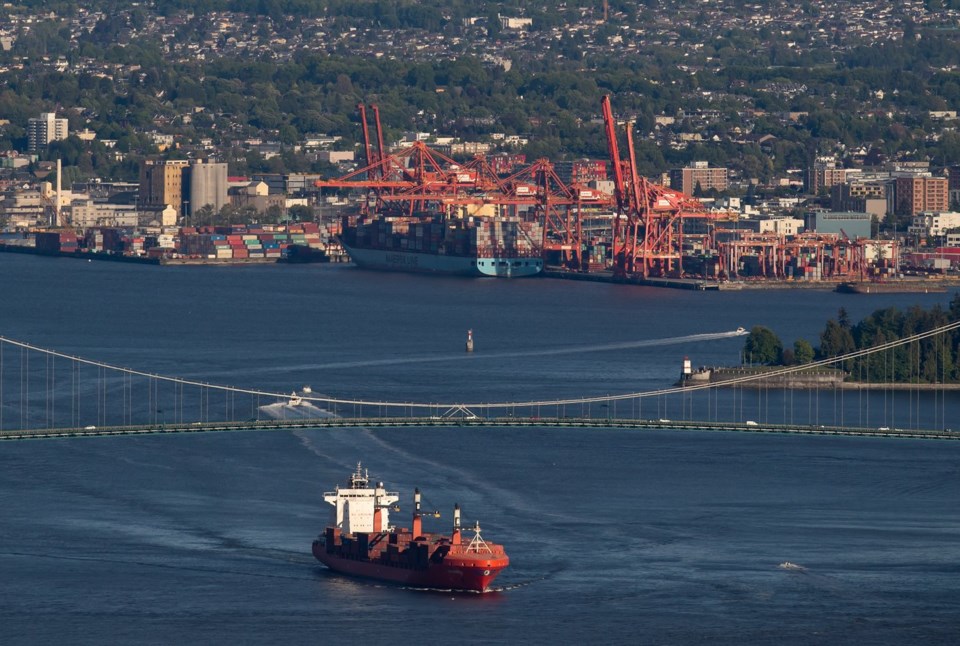
MONTREAL — Global shippers convened in Montreal on Thursday to sort out which sustainable fuels their vessels should use — a key question given that boats built today will still be running in 2050.
MONTREAL — Global shippers convened in Montreal on Thursday to sort out which sustainable fuels their vessels should use — a key question given that boats built today will still be running in 2050.
At the annual International Chamber of Shipping summit, chairman Emanuele Grimaldi said different fuel types make sense for different vessels, but that governments, producers and the transport sector need to reach consensus on green energy.
Options range from methanol and ammonia to hydrogen and nuclear propulsion in an industry where currently about 58,000 cargo ships run mainly on “bunker fuel” — heavy fuel oil with even higher sulphur levels than diesel.
The global industry group, which represents over 80 per cent of the world’s merchant fleet, is calling for a levy on maritime greenhouse gas emissions to encourage adoption of renewable fuels.
However, Grimaldi also said governments need to push for greater supply, given the lack of sustainable fuels as the sector aims for net-zero emissions “by or around 2050” — the target laid out last year in a plan by the United Nations’ International Maritime Organization, which regulates global shipping.
“There is no availability for these types of fuels, not so far,” Grimaldi told reporters.
“We are looking with keen interest to methanol, because methanol can also be produced through the garbage.”
Agricultural waste, city garbage and lumber residue such as leaves and branches all represent sources of feedstock for so-called bio-methanol — “something that is gold,” Grimaldi said, citing its projected future value.
Ammonia, which emits no carbon dioxide during combustion, is also viewed as a potential power source for cargo vessels. But the compound is costly as well as flammable and corrosive — a risk for seafarers and, should leakage occur, aquatic life.
“Today the engines are not available,” Grimaldi said. The hard-to-burn fuel requires a specialized internal combustion process. The first-ever ammonia-fuelled ship engines are expected for delivery later this year or in early 2025.
“For our passenger ships and for our ferries, we are looking more at methanol,” said Grimaldi, who also chairs the Naples-based Grimaldi Group, a shipping conglomerate with revenues that topped $7 billion last year.
“We know that methanol might be very poisonous,” he added. “No one would be in the engine room.”
Smaller vessels might be able to run on battery power. As for green hydrogen — produced from renewable electricity — “it might be very explosive.”
“We also need a lot of upscale,” Grimaldi said, referring to the need to ramp up production of the emerging fuel.
From shipping to aviation, a shortage of sustainable fuel plagues the transport world even as countries lay out ambitious goals to slash emissions and curtail global warming.
In Canada, carriers and marine shippers have asked the federal government to beef up funding for sustainable transport, money they hope will flow toward green supply chains and upgrades to existing infrastructure.
Tax credits, loans and grants are essential to help companies churn out less carbon dioxide and keep pace with other nations’ transportation networks, according to the National Airlines Council of Canada and the Chamber of Marine Commerce.
“The marine sector will be one of many consumers and users of these new fuels,” said chamber CEO Bruce Burrows.
“We’ll all be queuing up and wanting some sort of preferential treatment,” he said. “That’s going to be a competitive world — there will be limited supply and there will be lots of demanders.”
At the Port of Montreal, members of the International Chamber of Shipping planned to take an informal vote Thursday on which renewable fuels have the most potential.
The chairman also highlighted rising protectionism and global strife as barriers to maritime trade that ultimately push up costs for consumers.
This report by The Canadian Press was first published June 13, 2024.
Christopher Reynolds, The Canadian Press



